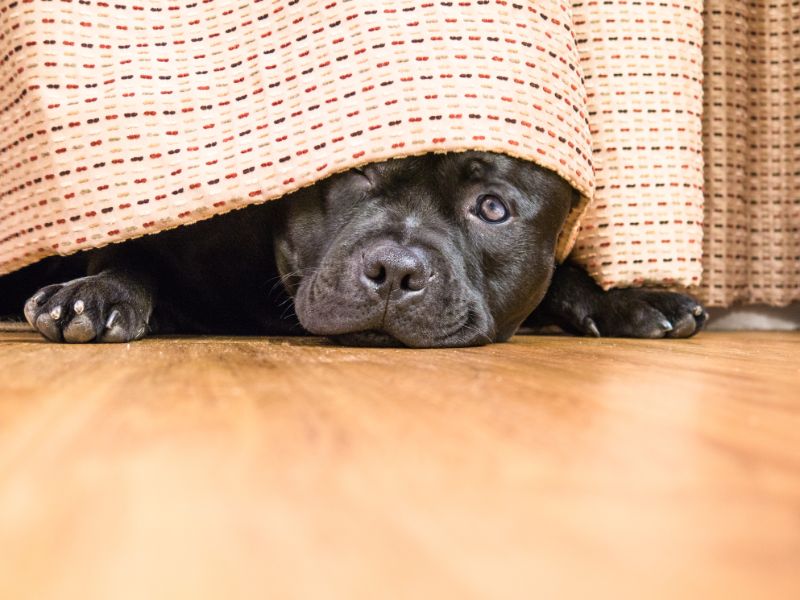This Summer, Should You Be Worried About Pet Noise Anxiety? The Answer May Surprise You

Some pet owners know by experience that certain noises, stimuli, or situations are downright unnerving for their pets. Others may just be learning about the various things that their pets find upsetting.
We can certainly do our best to reduce or minimize scary scenarios, but during the summer that’s a bit tricky. Thunderstorms, parades, construction, fireworks and more can all trigger pet noise anxiety – but it doesn’t have to take over your pet’s life when you’re prepared to help them cope.
Home Sweet Home
When it comes to pet noise anxiety, the safest place for them is at home, preferably with their owners. Pets respond to a fight-or-flight impulse when they feel scared or threatened. Many pets will bolt out of an open window or doorway, run into traffic, and disappear in an attempt to escape their fears.
Other pets will go into hiding as soon as they feel a drop in barometric pressure, or hear certain sounds that we can’t even register. If they are crate trained, they will likely retreat to their quiet place of refuge. Some pets have a repertoire of hiding places that their owners can only guess at. If you cannot find your pet during a storm or fireworks show, try not to panic. It’s common for them to pop out of the hiding places when danger passes.
A Word About Microchips
All pets should be collared with visible ID tags, but microchips are valuable assets to pets that flee when anxious or petrified. If your pet hasn’t been chipped, we encourage you to consider that this straightforward procedure can make all the difference when pets become separated from their owners.
Other Safety Practices
We recommend bringing your pet indoors whenever they feel threatened by loud noises. Stay with them in a quiet room with few windows, play soft music, dim the lights, and simply stay with them until they feel better. Healthy distractions like playing together, high-value treats, and chew toys may really hit the spot.
It’s important to remember that pet noise anxiety can be inadvertently reinforced when owners overreact to their pet’s symptoms. Remain as calm and neutral as possible.
Symptoms of Pet Noise Anxiety
Symptoms vary, but typically include any of the following behaviors:
- Trembling
- Pacing
- Drooling
- Digging
- Clinginess
- Increased vocalization
- Destruction
- Soiling inside the house
- Panting or yawning
- Hiding
- Escape attempts
There are ways to counter pet noise anxiety, such as acupuncture, pheromones, a pressure wrap or vest, melatonin, and prescription medicine are all powerful tools. You might also consider desensitization which can help pets overcome frightening stimulus by adding a component of enjoyable rewards.
We Can Help!
Please let us know if we can help your pet this summer. Stress, fear, and anxiety are never fun, but with the right approach to their safety and well-being you and your pet will hopefully be able to cope.
